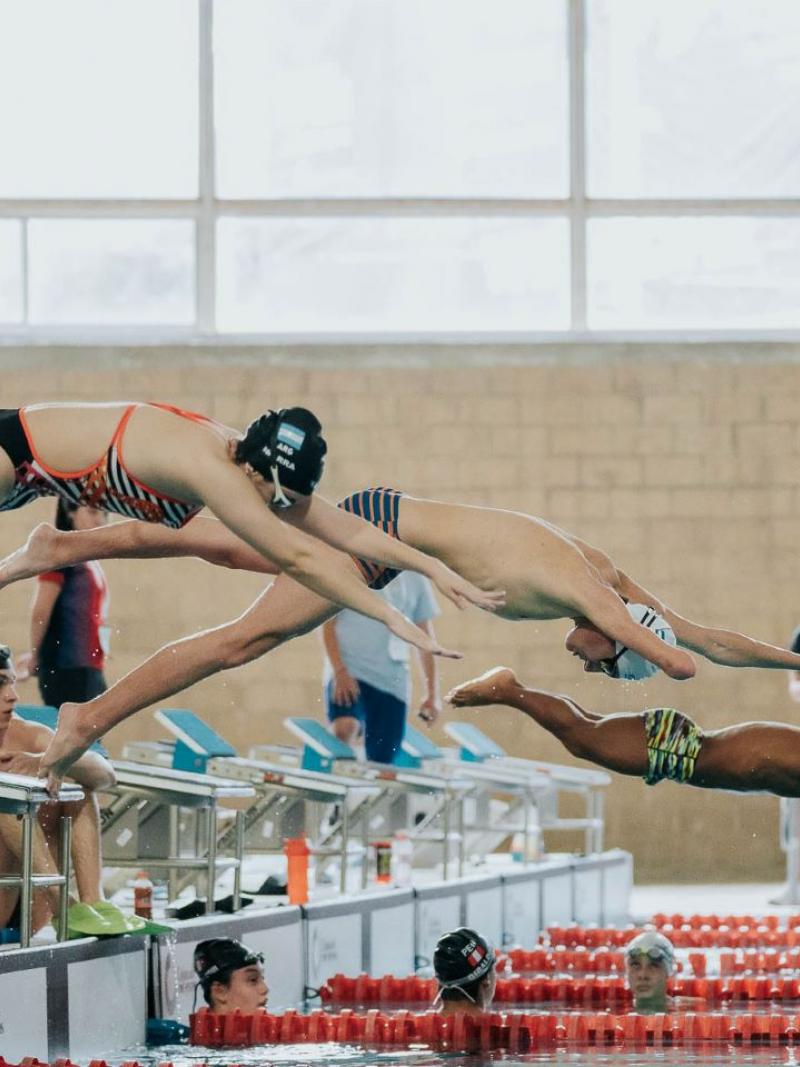Final Regional Sport Training of the year takes place in Japan
Thirty-eight people from 16 countries took part in the final Regional Sport Training event of the year. 27 Nov 2024The International Paralympic Committee (IPC) held its final Regional Sport Training event in Tokyo, Japan, in October as part of efforts to strengthen the Paralympic Movement in Asia. The activity aimed to support athletes, develop coaches and classifiers, and empower IPC member countries in the region to reach their full potential.
Supported by the Badminton World Federation (BWF) as well as World Taekwondo, 38 participants from 16 countries in Asia took part in the event. Para athletes participated in training sessions and workshops in Para badminton while sessions for coaches and classifiers included classroom-based courses in Para badminton and Para taekwondo.
Badminton Asia also supported the training camp by providing grants to nine of the 38 participants to attend the event. These included athletes from Bhutan, Brunei, Mongolia and Tajikistan.
The camp was also an opportunity for athletes to be classified in order to compete at future events.
Through the NPC (National Paralympic Committees) Development Programme, supported by worldwide Paralympic partner Toyota, the IPC delivers sport training events in different regions to stimulate further Para sport participation and development around the world. This event was the third in a series held in 2024; events earlier in the year took place in Morocco and Jamaica.
Supporting athletes
During the three-day training event, participants had the chance to learn from instructors and leading practitioners in Para badminton and Para taekwondo. A training camp for athletes and coaches, including a Proud Paralympian workshop provided an opportunity for Para athletes to learn about the history, values, and legacy of the Paralympic Movement.
The Proud Paralympian workshop facilitated the exchange of knowledge and experience on maintaining high-performance health and a well-being regimen, as well as managing media and professional image as athletes.
After the training camp, athletes competed in the Japan Para Badminton International tournament. Benefitting from the techniques and skills learned, Ayat Machlab of Lebanon and Tajik Saidov of Tajikistan secured two wins each.
Suleiman Abdulhafeez Alomari, a Para badminton athlete from Jordan said: “When you participate in tournaments and courses [like these], it helps build your character. Through these events, you get to meet people from other countries, and at the same time, you represent your own country.
“There is support for us, as people with disabilities, to participate in sports competitions and showcase our talents. This allows people to recognise the potential within us… You start to see how others are supported, and it motivates you to keep going.
“It was my first time participating in an international tournament, and I have wonderful memories of that experience. In the future, I hope to develop my skills and experience even further, participate in more tournaments, win medals, and reach higher levels.”
Developing leaders
The Regional Sport Training in Japan is the third to be held this year as part of the NPC Development Project. The IPC organises Regional Sport Trainings with the aim of amplifying opportunities for athletes, coaches, classifiers, administrators, and technical officials involved in various Paralympic sports.
Coaches play an important role in encouraging, identifying and training Para athletes in their countries and regions. A key element of the event is increasing the quality and quantity of sport technical personnel to coach and produce top quality Para athletes. The RST programme in Japan offered four courses for coaches and classifiers.
Dorji, who has been coaching badminton for over 20 years in Bhutan, said: "It’s a great initiative where the IPC is inviting coaches and players from developing countries where they are still developing badminton. [These courses] benefit all the coaches and players where they can share their knowledge. Some of my friends and coaches shared how my player can improve. I can also give feedback and every player has different learning.
“I can do some very good awareness programme for Para athletes when I go back, I can contribute something that I have learned here."
Akhyo Olimov of Tajikistan also stressed the importance of coaching: “It’s an opportunity to change someone’s life and give hope to someone. In our country and maybe around the world, people with disabilities are shy and don’t go out… [I want to] work with them and show the world that they also have some opportunities. They can show opportunities, power, sportsmanship, friendship.”
Building Paralympic knowledge
Participants of the sports training event also took part in a Proud Paralympian workshop. Proud Paralympian, the IPC’s education programme delivered by athletes to athletes, provides education about the Paralympic Movement and practical support throughout athlete careers.
The programme endeavours to maximise talent and develop committed ambassadors capable of inspiring the next generation, equipping them with the tools they need to excel both on and off the field of play. Empowered by their peers, athletes learn to find their place in the Paralympic Movement and become leaders in Para sports.






